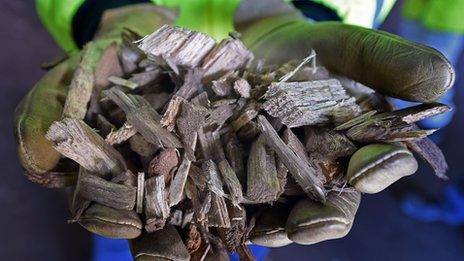British territories' environment 'at risk'
- Published
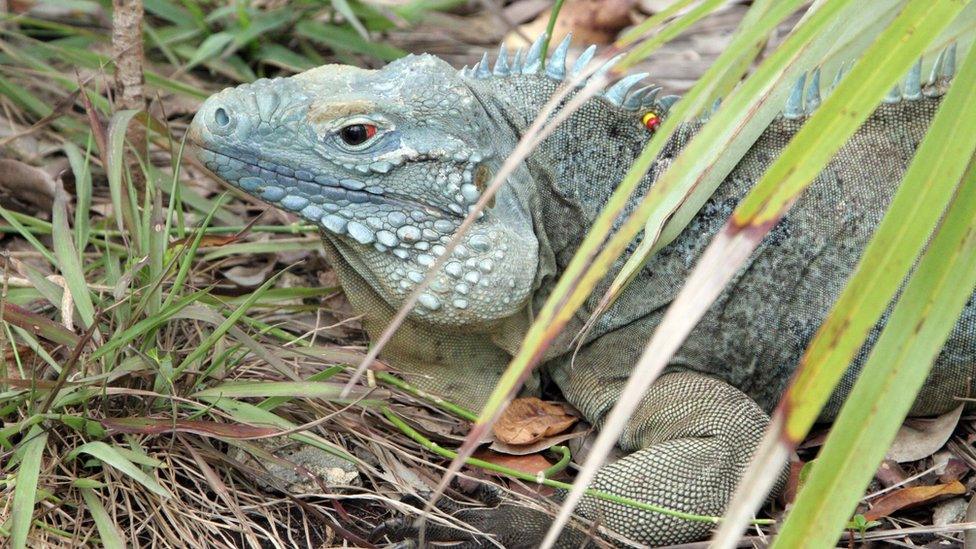
The Grand Cayman blue iguana is just one of the endangered species living on a British overseas territory
Wildlife and the environment in far-flung British territories are under threat, says a report.
Environment ministers from Britain's overseas territories say the government has cut funds and been distracted by Brexit.
They say there is huge confusion among government departments about responsibility for the territories.
The government calls the criticism unfair and points to its creation of large marine protection areas.
The UK holds jurisdiction over 19 British Overseas Territories and Crown Dependencies - parts of the British Empire that have not been granted independence or have voted to remain British territories.
Their lands hold an extraordinary wealth of rare species: 94% of the UK's endemic species - found nowhere else in the world - are in outposts of the former empire.
Among the endangered creatures are a giant frog called the Montserrat mountain chicken; the Spiky yellow woodlouse, existing only land the size of a tennis court on St Helena; and the Grand Cayman blue iguana.
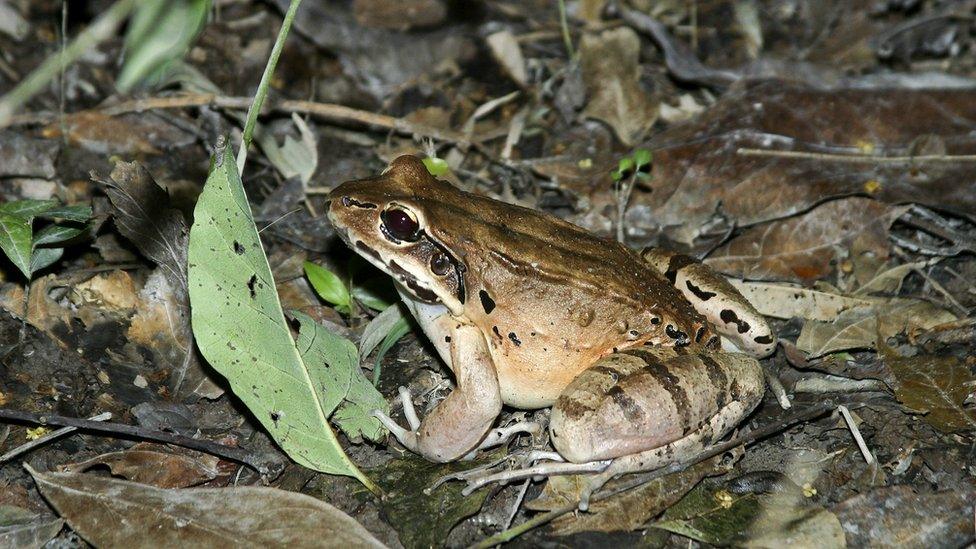
The Montserrat mountain chicken is one of the endangered species.
Representatives of 14 of the territories - ranging from Bermuda to Pitcairn and Gibraltar - joined the meeting of the UK Overseas Territories Conservation Forum on the Channel island of Alderney.
The islands are highly vulnerable to climate change, but ministers complained that the government had almost halved Foreign Office spending, external on the climate.
They also said cuts had eroded the capacity of the experts in the Joint Nature Conservation Committee (JNCC), who used to offer conservation advice.
The delegates in Alderney said other decisions on funding were going against them and that civil servants who had previously provided support are distracted by Brexit.
Who's in charge?
Confusion reigns over responsibility for supporting the islands, the ministers said.
The Foreign Office has the policy lead but it delegates biodiversity issues to the environment department, Defra.
The lead for the Crown Dependencies of the Isle of Man, Jersey and Guernsey (which includes Alderney) is with yet another department: the Ministry of Justice.
Claude Hogan from Montserrat said: "There is confusion in policy. We don't know the best person to approach and we end up going round in circles between different ministries.
"To protect the island and adapt to climate change we need to put in sea defences - but we only get enough money to go from one consultancy to the next."
The territories had previously received support for environment-focused programmes from the aid department DFID. But they said that ministers have now switched interest towards traditional job creation - even though the islanders said their economic future depends on a healthy environment.
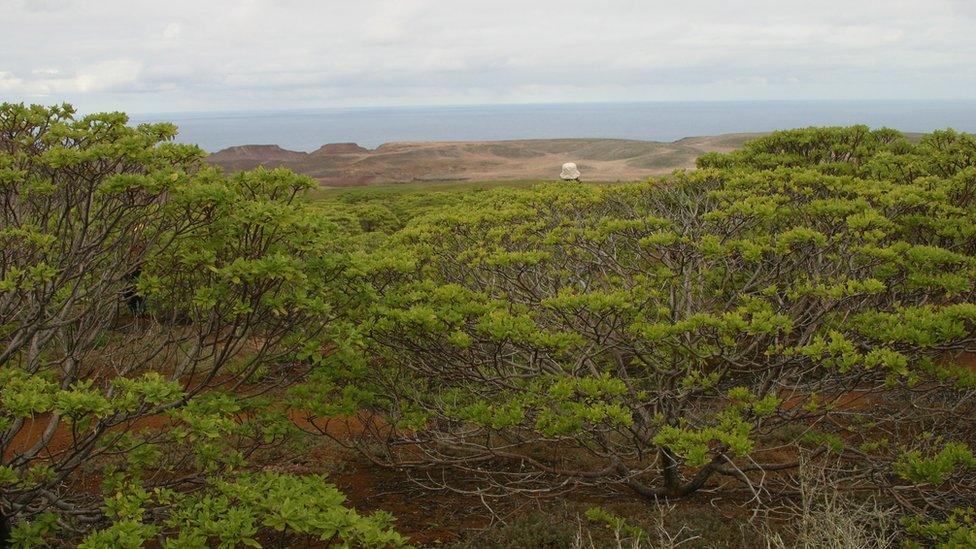
The Millennium Forest in St Helena is a reforestation attempt for the island
Brexit is a major concern, as many of the territories have received substantial funding from the EU.
The minister from from Pitcairn, Michelle Christian, said: "We can apply for EU funding for environmental issues such as soil erosion, waste management and water, so we are concerned about the future."
Gibraltar's minister John Cortes, a professional ecologist, said he was nervous at the possibility of Spanish encroachment on protected marine zones after the UK has left the EU.
A Foreign Office spokeswoman said the government was already working to improve cross-departmental policies on the territories.
She pointed to the internationally-acclaimed programme of marine protection around some key territories. The zone around Pitcain, for instance, will protect an area of ocean three and a half times the size of Britain.
The spokeswoman added: "Climate change and energy work is a network-wide priority. The Foreign Office works closely in partnership with departments across Whitehall on the international climate change agenda."
'Critical environmental issues'
The government's delegate had been forced to withdraw from the meeting in Alderney because of the election.
The meeting's organisers said the government had declined to foot the bill for the meeting, which was funded by Alderney in conjunction with voluntary groups.
They applauded the government's marine programme, but said many of the most critical environmental issues were on land.
Their best hope is that when Brexit is settled, the UK will devote more of its time and energy to them, rather than less.

Follow Roger on Twitter., external
- Published5 January 2017
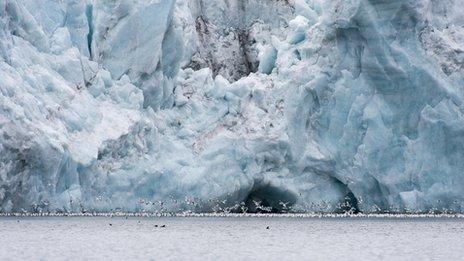
- Published18 January 2017
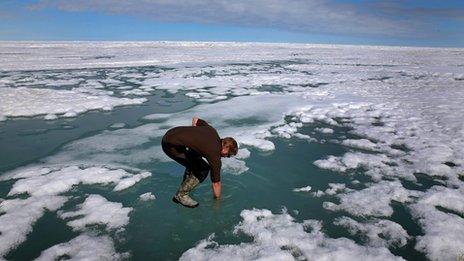
- Published23 February 2017
